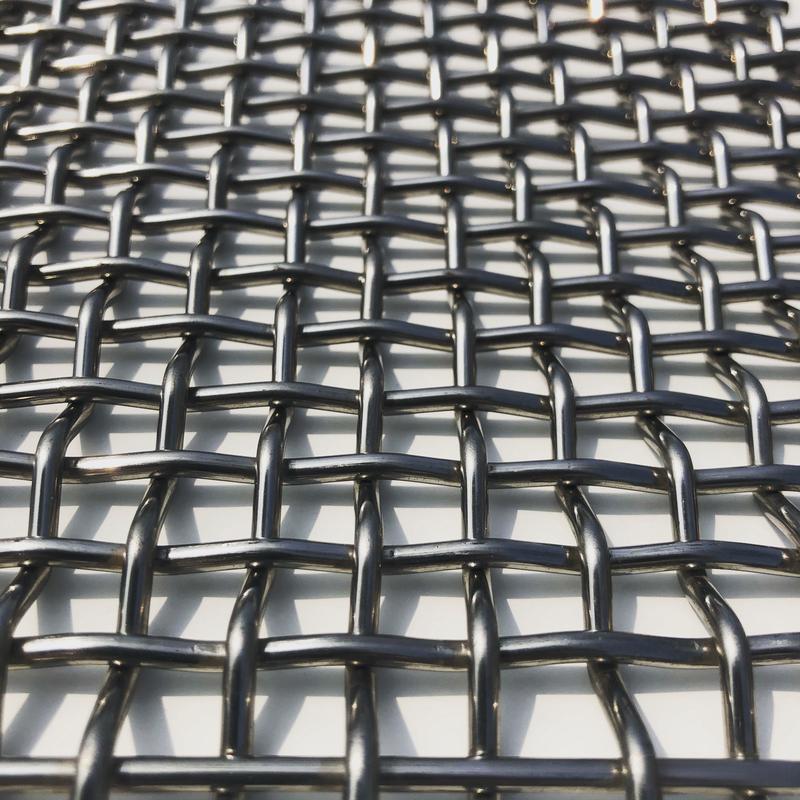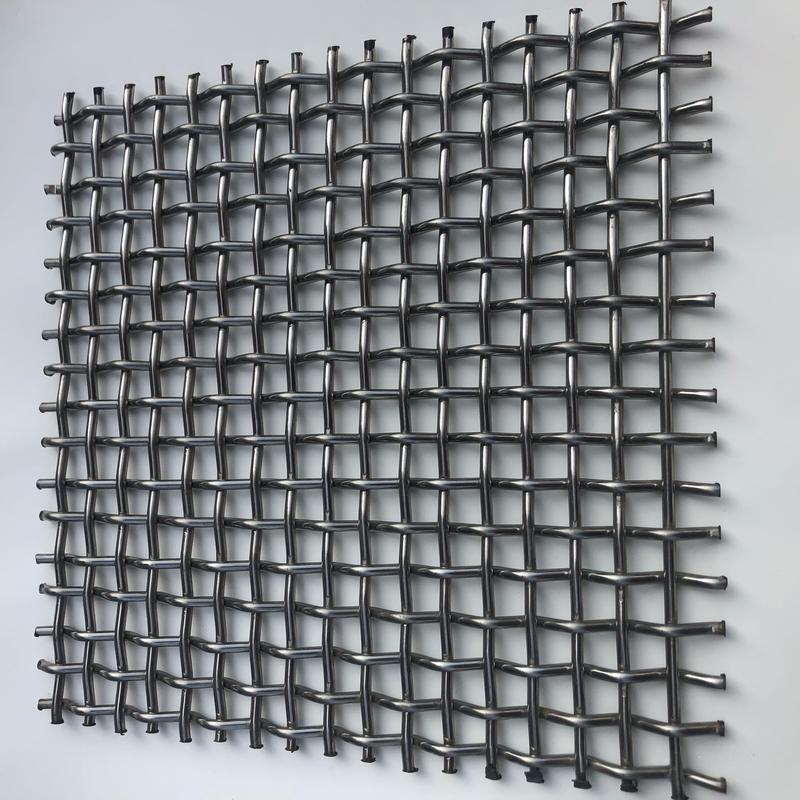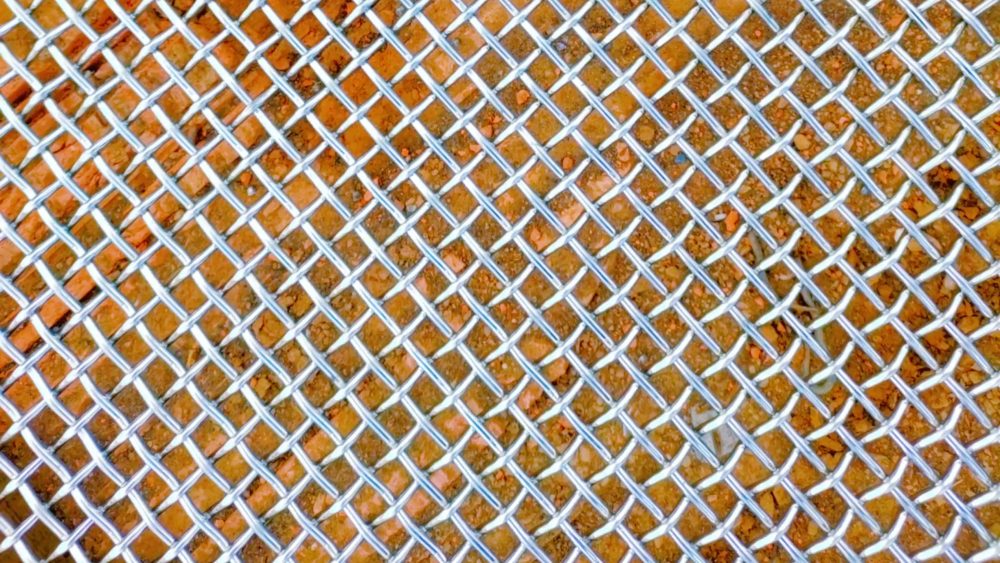Inconel wire mesh has emerged as a critical material in industries that require exceptional performance in extreme environments. Known for its high-temperature strength, excellent corrosion resistance, and mechanical durability, Inconel wire mesh is a staple in aerospace, chemical, energy, and electronics applications. This article examines the comprehensive production process of Inconel wire mesh, including its commonly used grades and the diverse range of applications.
1. Production Process of Inconel Wire Mesh
The manufacturing of Inconel wire mesh is a sophisticated process that combines advanced alloy metallurgy with precision wire mesh fabrication. The key production stages include:
1. Raw Material Preparation
The process begins with selecting high-purity metals such as nickel, chromium, molybdenum, and niobium. These metals are melted using vacuum induction melting (VIM) or electroslag remelting (ESR) to produce high-quality alloy ingots. For example, Inconel 600 requires a composition of 72% nickel and 14–17% chromium to ensure resistance to stress corrosion and oxidation at high temperatures.
2. Wire Drawing
The alloy ingot is hot-rolled into rods and subsequently cold drawn through multiple passes to achieve wire diameters between 0.1 mm and 2.0 mm. During this process, intermediate annealing is performed to eliminate work hardening and maintain ductility.
3. Weaving
High-speed weaving machines interlace the drawn wires into mesh using techniques such as plain weave, twill weave, or Dutch weave. The weaving method is selected based on the end-use requirement. For example, Dutch weave is often used for ultra-fine filtration mesh due to its compact structure and strength.

2. Common Grades and Their Characteristics
Inconel wire mesh is available in several grades, each offering unique properties suitable for specific applications:
-
Inconel 600: Ni ≥72%, Cr 14–17%, Fe 6–10%. This grade is known for its excellent resistance to chloride-ion stress corrosion and high-temperature oxidation.
-
Inconel 625: Ni ≥58%, Cr 20–23%, Mo 8–10%. Offers superior resistance to seawater, salt spray, and chemical corrosion, making it ideal for marine and chemical environments.
-
Inconel 718: Ni 50–55%, Cr 17–21%, Nb 4.75–5.5%. Offers high-temperature tensile strength and creep resistance up to 700°C.
-
Inconel X-750: Ni ≥70%, Cr 14–17%, Ti 2.25–2.75%. Used in high-strength and heat-resistant applications due to its age-hardening properties.
3. Application Areas and Real-World Examples
The unique properties of Inconel wire mesh make it indispensable across multiple high-performance sectors:
1. Aerospace
In aircraft engines, Inconel 718 wire mesh is used as a thermal insulation layer within flame tubes, capable of withstanding temperatures up to 1600°C. An example is its application in GE Aviation’s CFM56 engine series.
2. Chemical and Petrochemical
In reactors for purified terephthalic acid (PTA) production, Inconel 625 wire mesh serves as a catalyst support mesh, offering resilience against acetic acid and bromide corrosion.
3. Energy and Power
Inconel 600 dense mesh is employed in nuclear steam generators to reduce flow-induced vibration (FIV) between tube bundles, ensuring long-term mechanical stability.
4. Environmental Protection and Filtration
Flue gas filtration systems in waste incineration plants use sintered filters made of Inconel 601 wire mesh, which perform efficiently at temperatures up to 1100°C.
5. Electronics Industry
Inconel X-750 ultrafine mesh (up to 200 mesh) is utilized as a shielding layer in semiconductor CVD equipment, enhancing performance under high radiation and heat.

4. Special Process Applications
Multilayer Composite Wire Mesh
A notable innovation includes the development of composite filters, such as Inconel 625 as the outer layer and pure nickel as the inner layer. These are ideal for deep-sea heat exchangers requiring both corrosion resistance and high thermal conductivity.
Shaped Wire Weaving
Special weaving with flat and round wires enhances porosity and flow distribution, making it particularly useful in gas diffusion layers of fuel cells.
Through its advanced metallurgical and processing technologies, Inconel wire mesh delivers a remarkable combination of strength, thermal stability, and corrosion resistance. Its adaptability to various applications, from aerospace to environmental systems, confirms its status as an irreplaceable material for demanding environments. Whether for extreme heat, chemical exposure, or mechanical stress, Inconel wire mesh offers reliable and long-lasting performance.
Get Quote
We would like to hear from you. Please get in touch with us by filling out the contact form below, we will get back to you shortly.



Comments are closed.